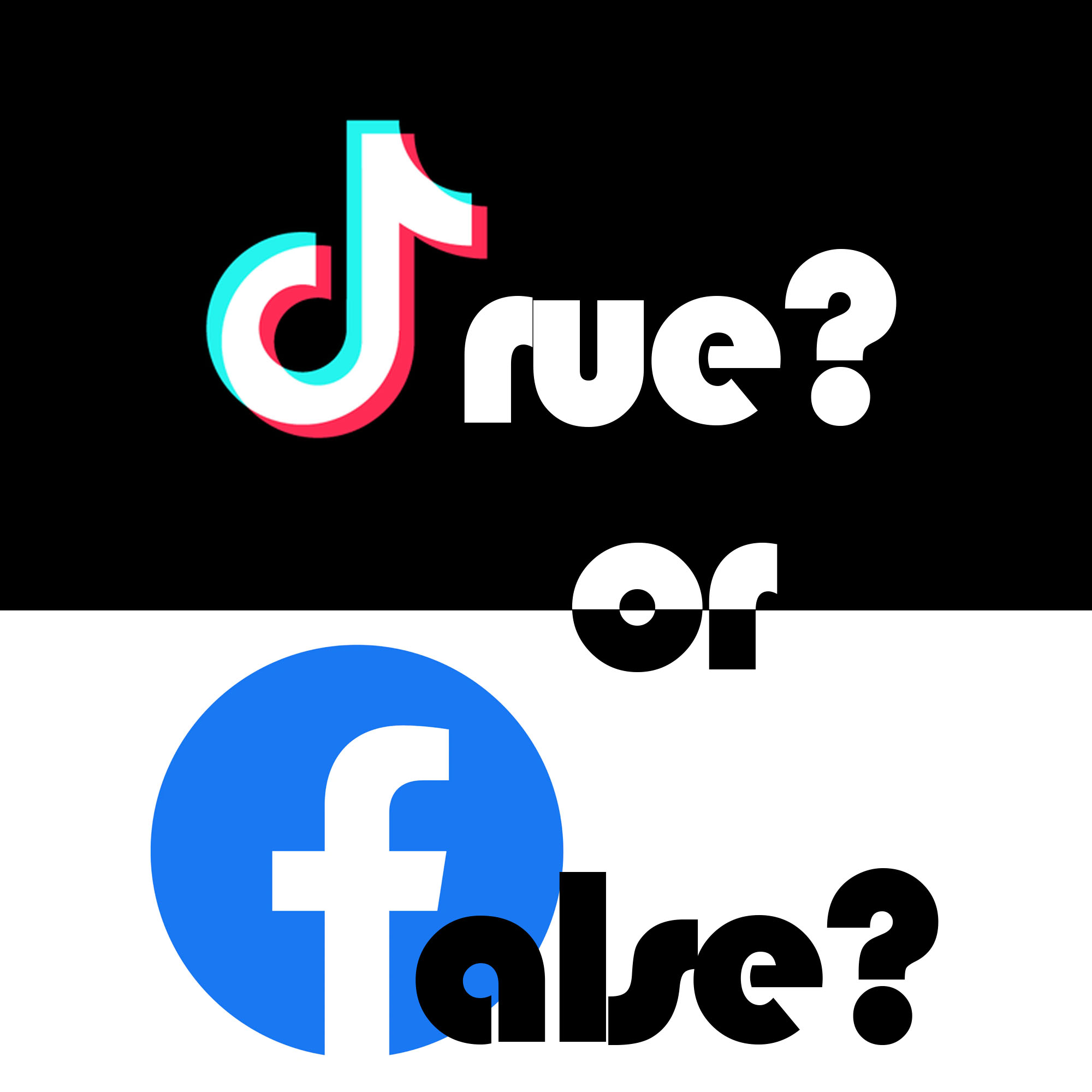

Taking Caution with Social Media Information
By David “Nick” Top Jr., PhD
Published May 13, 2022
Tiktok, Instagram, Facebook, and other social media platforms are plenty entertaining. Within a matter of seconds, you have access to videos, gifs, and memes on a variety of topics. These provide instant entertainment. Some especially popular content on these platforms (besides fail videos) are posts providing “information” about how to improve your physical or mental health. Everyone wants to have a better life and feel understood; it is part of being human. Feeling validated and understood is a very rewarding experience that can be provided by much of the “self-improvement/educational/inspirational” content. While these posts may help us feel good and validated, it does not necessarily mean that the content we viewed is factual or helpful. Sometimes relating to inaccurate information is harmless. For example, if you read that eating blueberries will boost your immune system and give you more energy, it is probably not going to hurt you, and it may be good for you, to eat blueberries even if that statement is false.
However, some information, while “feeling true,” may not be, and may lead to beliefs or behaviors that cause harm. For example, there is a circulating video about rejection sensitivity and attention-deficit/hyperactivity disorder (ADHD) that suggests that if you are sensitive about being rejected by peers in a social situation, you have ADHD. While there is a link between ADHD symptoms and rejection sensitivity (see References), it is not a unique enough description to be used as a diagnostic criterion for ADHD. Sensitivity rejection is also associated with depression, anxiety, obsessive compulsive disorder, personality disorders, and neurodiverse characteristics (autism, ADHD, etc.). Additionally, it is a normal to have an adverse emotional reaction when someone rejects us, making almost everyone sensitive to rejection. This idea that rejection sensitivity is part of ADHD can be harmful because it pathologizes a normal aspect of the human experience and may lead to additional social isolation, avoidance, and self-stigmatization. Thus, we need to be cautious about the “information” circulating around social media and how it may affect our lives.
How does one determine if something is accurate or not? From a scientific perspective, “when in doubt, continue doubting… and do your own research”. Skepticism can be healthy, especially when it comes to information about your physical or mental health. If you run across an interesting “fact” on social media, here are some things you can do to fact-check yourself.
- Talk to a medical or mental health professional. Medical doctors, Psychologists, and other mental health professionals go to school for a long time to become experts on these topics. For those in therapy, feel free to ask your therapist any questions that may relate to your mental health. If these professionals do not know, they will likely be able to point you in a helpful direction to find the answer for yourself.
- Do your own research using reputable sources. While Googling something is pretty easy, it actually doesn’t do a good job of providing the most reliable sources. Instead use scientific databases like Pubmed (https://pubmed.ncbi.nlm.nih.gov/) or PsycInfo (Available at https://uvu.libguides.com/az.php). Look for literature reviews or meta-analyses on the topic you are interested in. Finding and reading scientific articles can be difficult. However, it becomes easier with practice. Blog posts form professional organizations may be helpful as well; however, check the credential of the writer to make sure they are creditable.
- Admit that you heard something interesting but are unsure if it is true or not. Sometimes you cannot find the answer, and that is okay. Simply acknowledging that you are unsure if something is true can keep misinformation from spreading and potentially causing harm.
Social media platforms are fun and have become an integral part of our society. However, we need to be cautious about the information we see and share. Luckily, some healthy skepticism and research can go a long way.
References
Babinski, D. E., Kujawa, A., Kessel, E. M., Arfer, K. B., & Klein, D. N. (2019). Sensitivity to Peer Feedback in Young Adolescents with Symptoms of ADHD: Examination of Neurophysiological and Self-Report Measures. Journal of Abnormal Child Psychology, 47(4), 605–617. https://doi.org/10.1007/s10802-018-0470-2
Berenson, K. R., Gyurak, A., Ayduk, Ö., Downey, G., Garner, M. J., Mogg, K., Bradley, B. P., & Pine, D. S. (2009). Rejection sensitivity and disruption of attention by social threat cues. Journal of Research in Personality, 43(6), 1064–1072. https://doi.org/10.1016/j.jrp.2009.07.007
Bondü, R., & Esser, G. (2015). Justice and rejection sensitivity in children and adolescents with ADHD symptoms. European Child & Adolescent Psychiatry, 24(2), 185–198. https://doi.org/10.1007/s00787-014-0560-9
Caculidis-Tudor, D., Bică, A., Ianole-Călin, R., & Podina, I. R. (2021). The less I get, the more I punish: A moderated-mediation model of rejection sensitivity and guilt in depression. Current Psychology. https://doi.org/10.1007/s12144-021-01625-7
Canu, W. H., & Carlson, C. L. (2007). Rejection Sensitivity and Social Outcomes of Young Adult Men With ADHD. Journal of Attention Disorders, 10(3), 261–275. https://doi.org/10.1177/1087054706288106
Gao, S., Assink, M., Cipriani, A., & Lin, K. (2017). Associations between rejection sensitivity and mental health outcomes: A meta-analytic review. Clinical Psychology Review, 57, 59–74. https://doi.org/10.1016/j.cpr.2017.08.007
Pegg, S., Arfer, K. B., & Kujawa, A. (2021). Altered reward responsiveness and depressive symptoms: An examination of social and monetary reward domains and interactions with rejection sensitivity. Journal of Affective Disorders, 282, 717–725. https://doi.org/10.1016/j.jad.2020.12.093
Scharf, M., Oshri, A., Eshkol, V., & Pilowsky, T. (2014). Adolescents’ ADHD symptoms and adjustment: The role of attachment and rejection sensitivity. American Journal of Orthopsychiatry, 84(2), 209–217. https://doi.org/10.1037/h0099391

